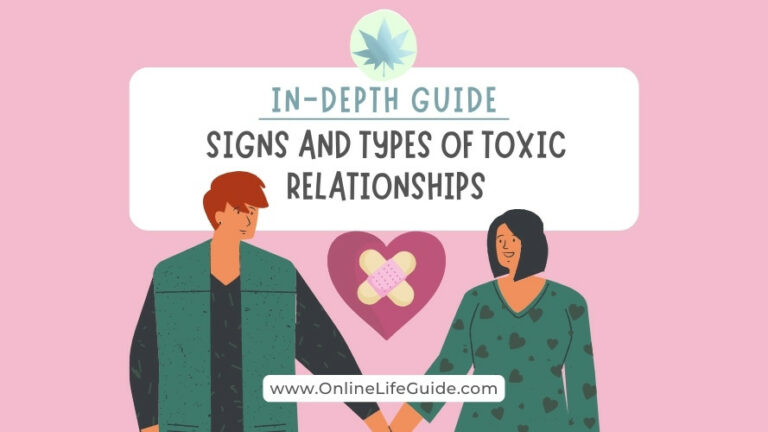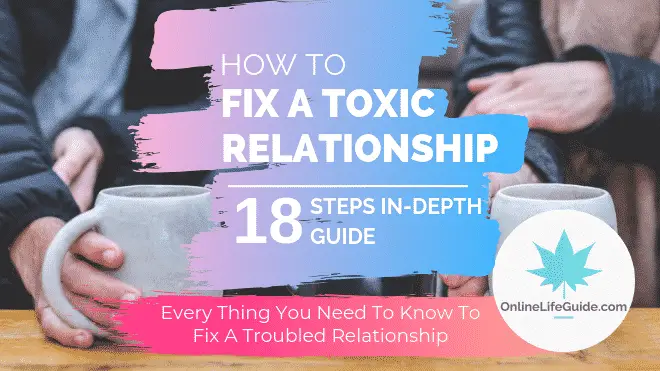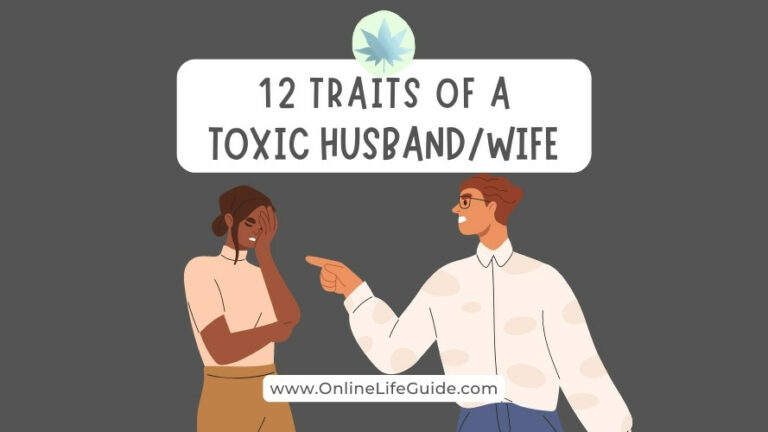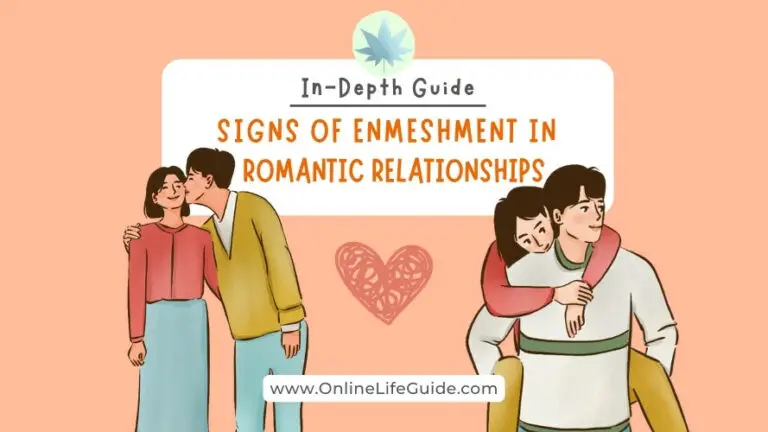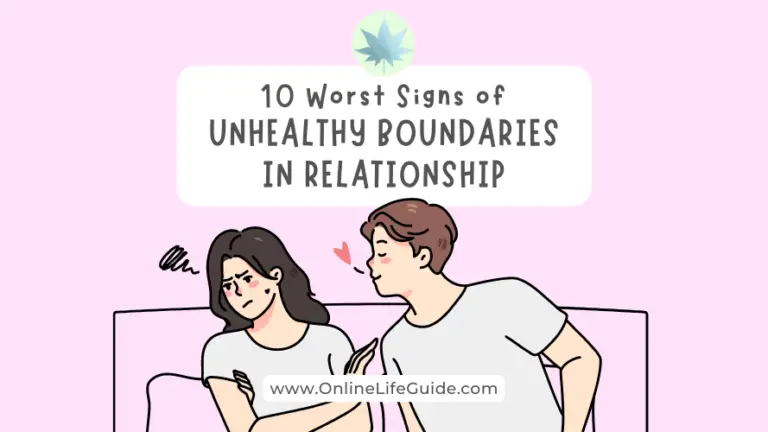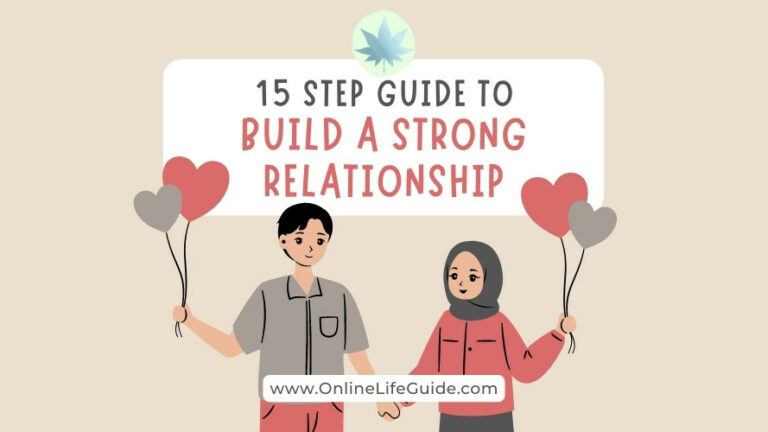6 Signs Your Partner Might Be Emotionally Immature

We’ll all agree that relationships are messy. We fight, we cry, we laugh so hard we snort milk out our noses (hopefully not in public). The important thing that makes lasting relationships stand apart from the rest is that the messiness shouldn’t feel like navigating a minefield blindfolded.
If you’re constantly on edge, wondering if your partner will explode over burnt toast or shut down completely because you dared to have an opinion, you might be tangled with someone who’s a bit…well… emotionally immature.
Now, before you write your partner off as a hopeless case and start packing up, let’s first unpack what emotional maturity actually means. Because honestly, it’s not about being some zen master who never gets upset. It’s about how you handle those upsets, how you communicate, and how you take responsibility for your own feelings and actions.
So, how do you know if your partner qualifies for a gold star in emotional immaturity? Here are 6 signs of a typical emotionally immature partner:
1. The Blame Game

Ever felt like your partner could be the most charming person you’ve ever met, but the second things get tough, you become their public enemy number one?
This is a classic sign of emotional immaturity. Mature partners can take a step back, reflect on their part in a disagreement, and – gasp – even apologize.
The emotionally immature partner, however? They’re more likely to play a never-ending round of “blame dodgeball.” They’ll deflect, they’ll project, and they’ll make it all your fault somehow. It’s exhausting, and frankly, it’s a recipe for constant resentment.
2. The Frequent Tantrums

We all get frustrated. Traffic jams suck, that printer has a personal vendetta against you, and sometimes your partner leaves their dirty socks right in the middle of the living room. Emotionally mature adults can manage these little annoyances without resorting to a toddler-esque meltdown.
The emotionally immature partner, on the other hand, throws tantrums worthy of a daytime soap opera. They yell, they pout, they might even throw a metaphorical (or literal) shoe. This kind of behavior might fly in kindergarten, but in a relationship, it creates a toxic environment where open communication goes out the window.
3. The Needy Nugget

Does your partner fish for attention like a starving fisherman? Do they seem to constantly need reassurance and validation? This might be a sign of a deeper issue of having a shaky sense of self-worth.
Emotionally mature partners understand that their value isn’t dependent on what others think. They can be secure in themselves and their relationship without needing a constant barrage of “you’re amazing” affirmations. The emotionally immature partner, however, craves that external validation. They might become clingy, people-pleasing, or even manipulative in their quest for approval.
Don’t get me wrong, words of affirmation are a beautiful habit to have in a relationship. It’s only when it is constantly craved from a place of insecurity and attention-seeking, is when this becomes toxic.
4. The Impulse King/Queen: Decisions Made with a Coin Toss and a Prayer

Remember that time your partner quit their job on a whim because their boss “looked at them funny”? Yeah, that’s impulsivity at its finest. While a little spontaneity can be important and fun at times, emotionally mature partners understand the value of thinking things through before leaping.
The emotionally immature partner, however, is more likely to act first and think later. This can lead to financial woes, reckless behavior, or even infidelity. It’s a recipe for disaster, and it leaves you, the supposedly mature one, picking up the pieces.
5. The Communication Chaos

Healthy relationships are built on open communication. You should be able to talk about anything, even the tough stuff, without feeling like you’re starting World War III.
The emotionally immature partner, however, views communication as a battlefield. They might shut down conversations, stonewall you completely, or resort to emotional manipulation to get their way. This lack of vulnerability and healthy communication creates a distance in the relationship, making it impossible to truly connect.
6. The Selfish Apathy

So you’re having a crappy day, and your partner just doesn’t seem to get it. They might even dismiss your feelings or make it all about them. Sound familiar? This is a major sign of emotional immaturity – a lack of empathy.
Emotionally mature partners can understand and share the feelings of others. They can offer a supportive shoulder to cry on, or simply a listening ear. The emotionally immature partner, however, struggles to see the world from your perspective. They might be dismissive of your needs, make everything about themselves (because, duh, their problems are obviously worse), or offer solutions that are completely out of touch with the situation.
Example: You’re devastated, worried about the future, and could really use some emotional support from your partner. But instead of offering a hug or a listening ear, they blurt out, “Well, at least you have more time to focus on that hobby you mentioned!” See how frustrating and insensitive that can be?
So, You’ve Spotted the Signs. Now What?
Alright, after reading this, you might be breathing a sigh of relief or sinking deeper into your couch cushions. Maybe you recognize some of these signs in your partner, or maybe you’re freaking out because some of them sound like you (hey, self-awareness is a good thing!).
Here’s the deal: A relationship with an emotionally immature partner can be draining and frustrating. But before you pack your bags and head for the hills, there are a few things you can do.
- Communication is Key (Even if They Throw Away the Lock): If you want your relationship to work long-term, open and honest communication is crucial. Pick a calm moment and express your concerns. Use “I” statements to avoid accusatory language, and focus on specific behaviors that bother you. Be prepared for defensiveness or resistance, but don’t give up. Remember, a truly mature partner will be willing to listen, reflect, and work towards improving the relationship. If they shut down completely or refuse to acknowledge your feelings, that might be a red flag.
- Therapy Can Be Your Best Friend: Couples therapy can be a game-changer. A therapist can provide a safe space for you and your partner to communicate, identify unhealthy patterns, and develop healthier coping mechanisms. Therapy isn’t just for relationships in crisis, it can also be a valuable tool for proactive couples who want to build a stronger foundation.
- Know Your Limits: You can’t force someone to change, and it’s not your responsibility to fix your partner’s emotional baggage. If they’re unwilling to put in the effort, you have to prioritize your own well-being. That might mean setting boundaries, taking a break, or even ending the relationship. It’s important to remember that you deserve to be in a relationship where you feel respected, valued, and emotionally supported.
Taking Care of Yourself is Not Selfish

Look, love shouldn’t feel like a non-stop 24/7 emotional rollercoaster ride. You deserve a partner who is your teammate, your confidant, someone who celebrates your highs and helps you weather the lows. If your relationship is constantly teetering on the edge, it might be time to re-evaluate things.
Don’t be afraid to walk away if things are at their worst and you see no hope of things getting better. It might be scary, but sometimes the bravest thing you can do is choose the right thing. And hey, who knows, maybe down the line, you’ll find someone who’s emotionally mature enough to appreciate the amazing, strong person you are.
In the meantime, focus on yourself. Invest in your own emotional well-being. Pursue your passions, nurture your friendships, and remember that you are worthy of a love that feels safe, secure, and truly fulfilling. Taking care of yourself isn’t selfish, it’s the foundation for a happy and healthy life, both in and out of relationships.
Some Things to Consider
This article isn’t meant to demonize emotionally immature partners. We all have areas where we can grow, and emotional maturity is a journey, not a destination. Here are some additional things to consider:
- It’s a Spectrum, Not a Binary: Emotional maturity exists on a spectrum. Some people might exhibit a few of these signs, while others might struggle mightily. The key is to identify the specific challenges and see if there’s a willingness to work towards improvement.
- It Might Not Be Them, It Might Be You: This article has focused on spotting emotional immaturity in your partner, but it’s also worth doing some self-reflection. Are there ways you could be contributing to unhealthy dynamics in the relationship? Are there areas where you could improve your own communication or emotional regulation?
- Change Takes Time: Don’t expect overnight miracles. If your partner is open to growth, be patient and supportive. Change takes time and consistent effort. Celebrate small victories and focus on progress, not perfection.
If you’re struggling to have mature conversations with your partner, check out this 5-step guide on How to Have Mature Conversations in Your Relationship.
Additionally, read 9 Steps to Have a More Mature Relationship with Your Partner.
All these articles (including the current one) are part of the Emotional Maturity Series. If you wish to dive into the whole series, you can start HERE.
Hope this helps you. Take good care! See you in the next one…

